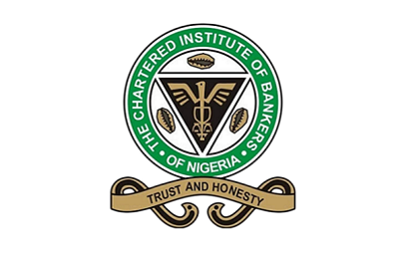In a significant revelation that underscores the evolving dynamics of Nigeria’s financial sector, the President of the Chartered Institute of Bankers of Nigeria (CIBN), Prof. Pius Deji Olanrewaju, has announced that net domestic credit to the private sector in Nigeria has soared to over N82 trillion. This milestone, highlighted during the 2025 Annual Bankers’ Dinner held in Lagos, reflects a remarkable growth trajectory in the nation’s banking industry and signals increasing confidence in private sector investment. The event, themed “Navigating the Future: Strengthening Nigeria’s Financial System for Inclusive and Sustainable Growth,” provided a platform for industry leaders to discuss the implications of this growth and chart a path forward for Nigeria’s economic development.
A Surge in Domestic Credit: Understanding the Numbers
According to Prof. Olanrewaju, the net domestic credit to the private sector stood at N82.4 trillion as of July 2025, marking a substantial increase of 36.2% from the N60.3 trillion recorded in July 2024. This figure, sourced from the Central Bank of Nigeria (CBN), underscores the banking sector’s pivotal role in driving economic activity by channeling funds to businesses and individuals. Domestic credit to the private sector refers to the total loans and advances provided by financial institutions, primarily deposit money banks, to non-government entities, including businesses, entrepreneurs, and households. This metric is a critical indicator of economic health, as it reflects the availability of credit to fuel investment, consumption, and overall economic growth.
The growth in domestic credit is particularly noteworthy given Nigeria’s challenging economic environment in recent years. The country has faced multiple headwinds, including inflationary pressures, foreign exchange volatility, and global economic uncertainties. Despite these challenges, the banking sector has demonstrated resilience, with deposit money banks playing a central role in mobilizing funds and supporting private sector activities. Prof. Olanrewaju attributed this growth to the banking industry’s ability to adapt to changing economic conditions and the increasing demand for credit from businesses seeking to expand operations.
The Role of Deposit Money Banks in Economic Development
Deposit money banks, which include commercial banks and other financial institutions licensed to accept deposits, have been instrumental in driving the increase in domestic credit. These institutions act as intermediaries, channeling savings from depositors to borrowers in the form of loans and advances. The surge in credit to the private sector indicates that banks are increasingly willing to lend, a sign of confidence in the economy’s growth prospects. This trend also suggests that businesses and individuals are actively seeking financing to pursue new opportunities, whether in agriculture, manufacturing, technology, or other sectors.
Prof. Olanrewaju emphasized that the banking sector’s ability to provide credit is a cornerstone of economic development. “The growth in net domestic credit to over N82 trillion is a testament to the resilience and adaptability of Nigeria’s banking industry,” he stated during his address at the Bankers’ Dinner. “This milestone reflects the sector’s commitment to supporting businesses and fostering inclusive growth across the country.”
The increase in credit also aligns with the CBN’s broader monetary policy objectives, which aim to stimulate economic growth while maintaining financial stability. The CBN has implemented several measures in recent years to encourage lending to the private sector, including the Loan-to-Deposit Ratio (LDR) policy, which mandates banks to maintain a minimum percentage of their deposits as loans. This policy has incentivized banks to increase lending, particularly to small and medium-sized enterprises (SMEs), which are critical drivers of job creation and economic diversification in Nigeria.
Sectoral Breakdown and Economic Implications
While the overall growth in domestic credit is impressive, a closer look at the sectoral distribution of these funds provides deeper insights into Nigeria’s economic landscape. According to CBN data, the manufacturing, agriculture, and trade sectors have been significant beneficiaries of the increased credit. The manufacturing sector, in particular, has seen a surge in lending, as businesses invest in expanding production capacity and adopting new technologies. This aligns with the federal government’s efforts to promote industrialization and reduce Nigeria’s reliance on imported goods.
Agriculture, a priority sector for the government, has also benefited from increased credit access. Initiatives such as the CBN’s Anchor Borrowers’ Programme have facilitated lending to farmers, enabling them to boost productivity and contribute to food security. The growth in credit to the agricultural sector is particularly significant, given Nigeria’s ambition to diversify its economy away from oil dependency and achieve self-sufficiency in food production.
The trade sector, encompassing wholesale and retail businesses, has also seen a notable increase in credit. This reflects the growing consumer market in Nigeria, driven by a young and expanding population. As businesses in this sector access more financing, they are better positioned to meet rising consumer demand, further stimulating economic activity.
However, the increase in domestic credit is not without challenges. Prof. Olanrewaju noted that while the growth is a positive development, the banking sector must address issues such as non-performing loans (NPLs) to ensure long-term sustainability. NPLs, which occur when borrowers fail to repay their loans, can undermine the financial health of banks and limit their ability to lend in the future. The CBN has reported that the NPL ratio in the banking sector has remained within acceptable levels, but ongoing vigilance is necessary to maintain stability.
Broader Economic Context: Opportunities and Challenges
The surge in domestic credit to the private sector must be viewed within the broader context of Nigeria’s economic landscape. In recent years, the country has grappled with significant challenges, including high inflation, currency depreciation, and external shocks such as fluctuations in global oil prices. These factors have put pressure on businesses and households, making access to affordable credit even more critical.
The CBN’s monetary policy stance has been a key determinant of credit growth. In response to inflationary pressures, the CBN has periodically adjusted the Monetary Policy Rate (MPR), which influences the cost of borrowing. While higher interest rates can help curb inflation, they also increase the cost of credit, potentially discouraging borrowing by businesses and individuals. Striking a balance between controlling inflation and promoting credit growth remains a delicate task for the CBN.
Foreign exchange volatility has also posed challenges for businesses, particularly those reliant on imported inputs. The depreciation of the naira has increased the cost of imports, squeezing profit margins and affecting the ability of some businesses to repay loans. To address this, the CBN has implemented measures to stabilize the foreign exchange market, including interventions in the forex market and initiatives to boost local production.
Despite these challenges, the growth in domestic credit signals optimism about Nigeria’s economic prospects. The private sector, which includes businesses of all sizes, is a critical engine of growth, contributing to job creation, innovation, and economic diversification. By providing financing to this sector, banks are playing a pivotal role in supporting Nigeria’s aspirations for inclusive and sustainable growth.
The Role of Technology in Driving Credit Growth
One of the key drivers of the increase in domestic credit is the growing adoption of technology in the banking sector. Digital banking platforms, mobile apps, and fintech solutions have made it easier for businesses and individuals to access credit. For instance, online loan applications and automated credit assessment systems have streamlined the lending process, reducing the time and cost associated with obtaining a loan.
Fintech companies, in particular, have emerged as significant players in Nigeria’s financial sector. By leveraging technology, these firms are reaching underserved populations, including SMEs and individuals in rural areas, who may not have access to traditional banking services. The rise of fintech has also fostered competition in the financial sector, prompting traditional banks to innovate and improve their service offerings.
Prof. Olanrewaju highlighted the transformative impact of technology during his address, noting that digitalization has expanded financial inclusion and enabled banks to reach a broader customer base. “The integration of technology into banking operations has revolutionized the way we deliver financial services,” he said. “It has made credit more accessible and efficient, particularly for small businesses and entrepreneurs.”
The CBN has also supported the growth of fintech through initiatives such as the Regulatory Sandbox, which allows fintech companies to test innovative products in a controlled environment. This has encouraged the development of new financial products tailored to the needs of the private sector, further driving credit growth.
Policy Recommendations for Sustained Growth
While the increase in domestic credit is a positive development, sustaining this growth requires a coordinated effort from policymakers, regulators, and industry stakeholders. Prof. Olanrewaju outlined several recommendations during the Bankers’ Dinner to ensure that the banking sector continues to support economic growth.
First, he emphasized the importance of strengthening risk management practices to address the issue of non-performing loans. Banks must adopt robust credit assessment processes to ensure that loans are disbursed to viable businesses with the capacity to repay. This will help maintain the financial health of the banking sector and ensure its ability to continue lending.
Second, Prof. Olanrewaju called for increased collaboration between the CBN, banks, and other stakeholders to promote financial inclusion. While significant progress has been made in expanding access to financial services, millions of Nigerians remain unbanked. Targeted initiatives, such as microfinance programs and partnerships with fintech firms, can help bridge this gap.
Third, he urged the government to create an enabling environment for private sector growth. This includes addressing structural challenges such as inadequate infrastructure, inconsistent power supply, and bureaucratic hurdles that hinder business operations. By improving the ease of doing business, the government can enhance the private sector’s ability to absorb and utilize credit effectively.
Finally, Prof. Olanrewaju stressed the need for continuous capacity building in the banking sector. The CIBN, as a professional body, has a critical role to play in training and upskilling bankers to meet the evolving needs of the industry. Programs such as the CIBN’s certification courses and workshops can equip bankers with the skills needed to navigate a rapidly changing financial landscape.
The Path to Inclusive and Sustainable Growth
The theme of the 2025 Annual Bankers’ Dinner, “Navigating the Future: Strengthening Nigeria’s Financial System for Inclusive and Sustainable Growth,” encapsulates the aspirations of Nigeria’s banking sector. The surge in domestic credit to over N82 trillion is a significant milestone, but it is only one part of the broader journey toward economic prosperity.
Inclusive growth requires ensuring that the benefits of economic progress are shared across all segments of society. This means prioritizing lending to underserved sectors, such as SMEs, women-owned businesses, and rural enterprises. By channeling credit to these groups, banks can help reduce income inequality and promote social equity.
Sustainability is equally important. The banking sector must adopt environmentally and socially responsible practices to ensure that growth does not come at the expense of future generations. This includes supporting green initiatives, such as renewable energy projects, and adhering to global standards on environmental, social, and governance (ESG) criteria.
The CIBN, under Prof. Olanrewaju’s leadership, is committed to advancing these goals. The institute’s annual dinner provided a platform for stakeholders to exchange ideas and develop strategies for strengthening Nigeria’s financial system. The event also featured the conferment of awards to outstanding bankers and institutions, recognizing their contributions to the industry’s growth.
Looking Ahead: Opportunities for Nigeria’s Financial Sector
As Nigeria looks to the future, the growth in domestic credit to the private sector presents significant opportunities. The private sector’s ability to access financing will be critical to driving innovation, creating jobs, and fostering economic diversification. Sectors such as technology, renewable energy, and agribusiness hold immense potential for growth, and banks can play a pivotal role in supporting these industries.
However, realizing this potential requires addressing ongoing challenges. The banking sector must navigate the complexities of a dynamic economic environment, including inflationary pressures, foreign exchange volatility, and global uncertainties. Collaboration between the government, regulators, and private sector stakeholders will be essential to creating a conducive environment for sustained growth.
The CBN’s role in this process cannot be overstated. By maintaining a stable monetary policy framework and promoting financial inclusion, the CBN can ensure that the banking sector continues to serve as a catalyst for economic development. Initiatives such as the Cashless Policy and the National Financial Inclusion Strategy have already made significant strides in expanding access to financial services, and further progress in these areas will be crucial.
Conclusion
The increase in net domestic credit to the private sector to over N82 trillion is a landmark achievement for Nigeria’s banking industry. It reflects the sector’s resilience, adaptability, and commitment to supporting economic growth. Under the leadership of Prof. Pius Deji Olanrewaju, the CIBN is playing a vital role in guiding the industry toward a future of inclusive and sustainable growth.
As Nigeria navigates the challenges and opportunities of the 21st century, the banking sector will remain a cornerstone of economic progress. By continuing to provide credit to the private sector, embracing technology, and addressing structural challenges, banks can help unlock Nigeria’s vast potential and build a more prosperous future for all its citizens. The journey to inclusive and sustainable growth is ongoing, but with milestones like this, Nigeria is well on its way to achieving its economic aspirations.







